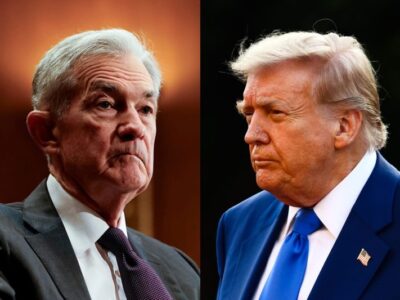
The last Group of Seven (G7) summit that took place May 19–21, 2023, in Hiroshima deserves attention because it exposes the latest Western attempt to impose its unipolar worldview. But first, a bit of background on the G7.
The G7 is the group of seven nations (USA, Japan, France, Germany, Italy, Canada, and the United Kingdom) that in the ’70s comprised the major industrialized countries of the capitalist world. But because of the enrichment of a large part of the world’s population and the economic stagnation of many Western nations, the situation has changed dramatically. The G7’s share of the world gross domestic product has gone from 70 percent to only 27 percent, contributing just 15 percent of overall growth in 2012–21. Moreover, they now account for only 10 percent of the world’s population.
By comparison, the five “BRICS” nations (Brazil, Russia, India, China, and South Africa) now contribute almost 31.5 percent of world gross domestic product and account for a significant share of global growth as well as 42 percent of the world’s population.
Moreover, these differences between the G7 and the BRICS will only become starker. Most G7 members are teetering on the brink of economic recession, self-inflicted by years of irresponsible monetary policy and price inflation (a result of artificially low interest rates and a voluntary increase of energy prices).
The G7 nations therefore no longer convene, in reality, as major industrial powers but rather as ideological and geostrategic allies. This becomes obvious in view of the agenda of the Hiroshima summit, aimed at giving the rest of the world the Western position to adopt on virtually every subject from security to climate change.
The G7 against Russia
With regard to the Ukrainian conflict, the G7 was an opportunity for President Joe Biden to announce the training of Ukrainian pilots to fly F-16s, although this training has probably already started. This announcement is not only an exercise in political communication to confirm continued US support, but it is also a worrying Western escalation of the conflict, which increasingly resembles a North Atlantic Treaty Organization proxy war against Russia.
It is not the likely delivery of F-16s itself that is worrying because a few dozen or so old fighter jets will have no impact on the conflict, as has been confirmed by both the Pentagon and the Kremlin. What is concerning about this decision is the determination of the G7 leaders to continue to support this conflict, rejecting negotiations. This attitude reflects a long-standing geopolitical goal as well as an ideological obsession to weaken Russia, as Defense Secretary Lloyd Austin put it. The costs of this senseless policy are being borne by the Ukrainian people through their loss of life and the destruction of their country as well as by all Westerners in the form of long-term decline.
Given the turn of the war in Ukraine, with the Ukrainian army in ever more dire straits as its recent defeat in the city of Bakhmut confirms, Western leaders are trying to pressure China, insistently but vainly, to use its influence with Moscow to prevent the conflict from ending in debacle for the West.
The G7 versus China
In Hiroshima, the G7 also made what the Financial Times called “the strongest condemnation of China to date.” Indeed, although couched in relatively diplomatic language, articles fifty-one and fifty-two of the G7 Hiroshima Leaders’ Communiqué criticized China’s position in virtually every area: law, military, politics, diplomacy, and economics.
The G7 found this last point unacceptable: “We will seek to address the challenges posed by China’s non-market policies and practices, which distort the global economy.” That sentence must have particularly annoyed Beijing since such policies and practices from the US and the European Union are plentiful and well-known, as the Chinese foreign ministry was careful to point out. The G7 criticizing China’s “economic coercion” is certainly a case of the pot calling the kettle black as this is precisely the modus operandi of these nations, as evidenced by the massive Western sanctions now distorting a large part of the world economy to the detriment of all its citizens.
One of the objectives of the G7 summit was precisely to adopt a “united” criticism of China in order to serve America’s disproportionate geostrategic interests. It’s clear that Washington wants to cling a little further to the dream of world hegemony by making the whole world adhere to its “international rules-based order,” rules not surprisingly kept vague and undefined.
Of course, the Chinese reaction to this strong criticism was firmer than usual. “Despite China’s serious concerns, the G7 used issues concerning China to smear and attack China and brazenly interfere in China’s internal affairs. China strongly deplores and firmly opposes this and has made serious démarches to the summit’s host Japan and other parties concerned,” the spokesperson from the Chinese foreign ministry said.
The G7 against Freedom
Indeed, these strong G7 “recommendations” will remain wishful thinking. This G7 summit confirmed the extent to which Western leaders have abandoned the principles of freedom and rule of law that led to their G7 status of “advanced economic powers” in the first place. Before painfully continuing negotiations toward more free trade, the principle of nonintervention in the affairs of other nations regardless of their political and institutional systems must be respected, as per the United Nations Charter.
In other words, there is a crucial difference between two opposing concepts. On the one hand, there is political globalization—another name for global fascism in a unipolar world—based on governance by institutions controlled by the Western elites. On the other hand, there is economic globalization, which is nothing more than international free trade.
The BRICS nations, led ideologically by Russia and China, are attractive to the rest of the world because they want to implement multipolar economic globalization and abandon the political globalization pushed for by the G7. Indeed, it is ironic that it is not the G7 but China that states, “Economic globalization is the realistic precondition for world peace.” Ludwig von Mises could not have said it better.
The ideological divide between the West and the rest of the world becomes clear here, but there are signs that some in the West are finally starting to see the light. Martin Wolf of the Financial Times writes: “Both the ‘unipolar’ moment of the US and the economic dominance of the G7 are history.” And with regard to the BRICS, he rightly explained, “What brings its members together is the desire not to be dependent on the whims of the US and its close allies, who have dominated the world for the past two centuries.”
When even this associated editor and chief economics commentator of the Financial Times, the newspaper of the Anglo-Saxon globalist financial elites, starts sending out such signals, it likely means that an adaptation to the new emerging reality is now understood as necessary, if only to protect Western capital.
As was already proposed through the Mises Institute, libertarians should support the multipolar world against the unipolar world. Yet rejecting US economic and legal imperialism does not, of course, signify supporting the Chinese political system. On the contrary, libertarians see that illiberal practices already in existence in China have been, or are about to be, implemented in the West, such as mandatory confinements, intelligence agencies’ control of social media, the introduction of a universal digital pass, and the use of facial recognition technologies by the authorities.
If there is one lesson from the G7 summit in Hiroshima it is the following: as long as the G7 nations continue to want to impose their nefarious agenda of political globalism, the isolation of these nations and the antagonism of the rest of the world toward them will increase.








